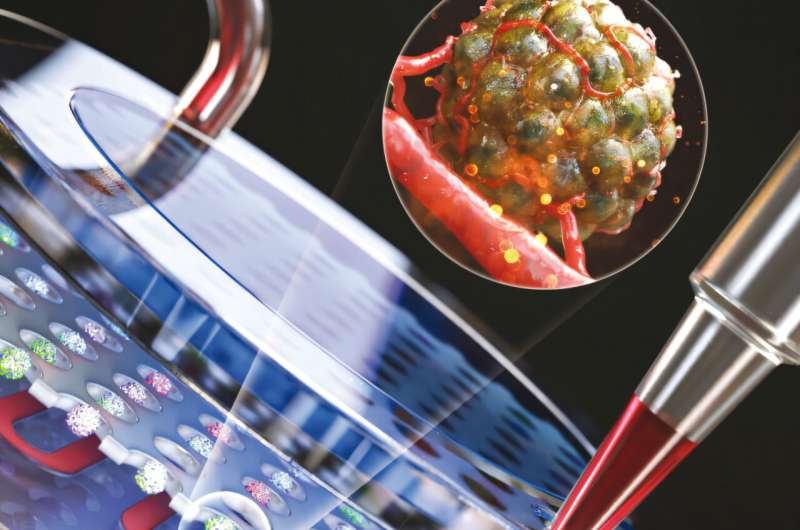On April 14, Professor Yoon-Kyoung Cho and her research team from the Department of Biomedical Engineering at UNIST unveiled the spheroid-endothelium interaction (ODSEI) chip, a microfluidic device designed for the large-scale real-time analysis of the interactions between cancer cells and vascular cells. The research is published in the journal Advanced Science and was selected as a cover article.
Cancer cells require significantly more nutrients and oxygen than normal cells to proliferate rapidly. As they cannot produce these resources independently, they stimulate nearby vascular cells to draw the necessary supplies. Understanding the interactions between cancer and blood vessels is crucial for uncovering the dynamic mechanisms of cancer metastasis and drug resistance, and for formulating effective treatment strategies.

